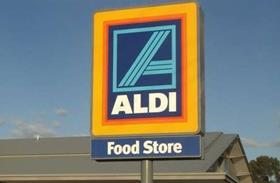
Aldi is now the most profitable supermarket chain in Australia, and continues to increase its market share and gain more customers, according to a UBS report released early May.
Aldi’s East Coast penetration is now at 56 per cent, up from 50 per cent in 2010, driven by broader customer appeal, including wealthier shoppers.
Along the East Coast, Aldi holds around 15 per cent of the retail market, and more recently opened its new format stores in Western Australia (WA) and South Australia (SA), now operating 410 stores across the country and generating A$7bn in sales.
The report, written by UBS analysts Ben Gilbert, Craig Stafford and Apoorv Sehgal, forecasts Aldi’s sales to reach at least A$10.6bn by 2019, double that of 2013, driven by rising penetration, improved execution (in fresh particularly) and its expansion into WA and SA.
“Looking forward, we expect Aldi to each 6 per cent market share in SA/WA by FY19, driven by faster than expected roll-out and strong early acceptance (anecdotal) of the format,” the report stated.
Speaking to Produce Plus earlier this year, consultant Tristan Kitchener of Kitchener Partners said the success of Aldi in Australia is partly due to a change in consumer sentiment towards to German-headquartered discounter.
“There has been a resetting in consumers’ attitudes post the global financial crisis (GFC). Prior to GFC, shopping at Aldi might have been slightly frowned upon, but shopping at Aldi can now mean you’re a frugal, savvy and switched on shopper,” Kitchener explained. “Just as upmarket UK retailer, Marks & Spencers, de-stigmatised private label and made it acceptable to the mainstream market in the 1980s, so Coles' corporate brand has de-stigmatised ‘low price’ and thus, ironically, aided Aldi’s growth.”
Kitchener explained that Aldi's smaller stores are more convenient to shop, offering good-quality, competitively priced products.
“Aldi has also done a good job wooing the budget focused consumer, but at the same time, I think customers just want something a bit different,' Kitchener said. “Aldi is now increasingly capturing affluent, younger consumers. The challenge for Aldi is to capture more of the full-shop, with opportunities to expand its fresh offering.”
Opportunities in fresh
The UBS report found that while Aldi is gaining share and shoppers, its customers are spending less per shop, with fresh the biggest opportunity to improve its offering, and Aldi's main impediment to lifting its share of 'main-shops'.
As for the effects of Aldi growing market share on leading retailers Coles and Woolworths, UBS found that while Aldi was winning sales from all retailers, Cole’s was doing the best at mitigating Aldi’s impact.
“Coles is doing the best job competing against Aldi, and we expect it to be least impacted over the next three years,” the report said, citing Coles’ ‘Everyday Value’ strategy for slowing Aldi’s like-for-like sales in the past 12 months.
While Metcash/IGA was found to be the most at risk of losing share to Aldi, UBS said going forward, IGA will lose share to Aldi at a slower rate as a result of IGA’s strong market share in SA and WA.
A full interview with Tristan Kitchener on Australia’s retail market is available in the winter edition of Produce Plus



